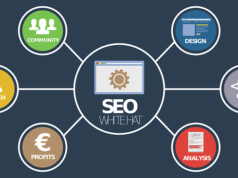“We use cookies on our website…” “Your choices regarding cookies…” “Your cookie settings…”
Banners like these have become ubiquitous across the internet in recent years, and many of us just click to dismiss these messages without thinking about it. But what is it that you’re agreeing to?
What are cookies in the first place, and why should you care? Let’s dive in and learn about why cookies are currently an important part of the internet, why some cookies may be better than others, and how ad networks use data recorded in cookies to better target ads.
The Cookie Monster ‡
Firstly, we should understand what cookies are and why they’re used. Cookies are small snippets of text and numbers stored in your web browser by websites.
Many websites use cookies to help store user settings (like whether you prefer dark or light mode), login information, store your shopping cart information, or even remember whether you’ve dismissed their cookie banner!
Cookies set by the website you’re currently visiting are called “first-party cookies” and are usually used by websites for the purposes we already mentioned, such as to help the user avoid having to input the same information over and over and to save their preferences.
But what are “third-party cookies” and why is the industry moving away from them? Third-party cookies are cookies set in your browser by websites other than the one you’re currently visiting.
For instance, say you’re doing some research for a new pair of headphones on a retailer’s website. Along with all the cookies they set to remember your cart details, wishlist, and other preferences – many retailers install ad tracking tools on their site to help identify whether a user who clicked on a particular ad went on to make a purchase. This can help the retailer better understand if they’re getting a good return on investment from their advertising. These trackers often add a cookie to your browser to help them build a profile of your browsing behavior and interests to allow them to better target you with personalized advertising.
Browsers bite back
As users have become more aware of how platforms like Facebook, Google, and other ad networks have used their data to develop their targeting systems, there’s been increasing pressure to reevaluate third-party cookie usage across the industry.
For example, Safari, the default browser on macOS and iOS, has blocked third-party cookies by default since 2020 and has added additional privacy features such as blocking cross-site tracking by default since 2022.
While not blocking all third-party cookies by default, browsers including Edge, Opera, and Firefox have implemented restrictions on their use in their standard privacy settings, making them significantly less useful for advertising networks and increasing user privacy significantly.
This leaves the world’s most popular browser, Google Chrome, sitting alone without any default privacy protections for its users (although users can add third-party cookie blocking in the settings if they desire). Given Google’s dominance in the ad space and the browser space, restricting third party cookies by default could cause major disruptions to their advertising customers’ performance, and could disadvantage competing ad networks who still rely on third-party cookies to operate. Google is planning to start blocking third-party cookies by default in 2024, so it’s been vital that they develop an alternative way to operate their ad platform without them while still retaining solid targeting for their ad customers.
Future of Targeting
With the clock ticking toward their cut-off date, Google is testing a new targeting system called the Topics API as part of their broader Privacy Sandbox initiative to help replace third-party cookies.
Instead of relying on huge quantities of data collected on the ad company’s servers to build profiles of user interests, interests, or ‘topics’ as Google calls them, are calculated in the user’s browser.
As the user browses the internet, their browser begins to infer what topics the user is interested in based on the websites they visit and stores it in its memory. When the user visits a site that displays ads, the ad network will read the list of topics the user is interested in from their browser and display an ad that’s relevant to their interests.
Some concerns still exist though with this proposal. There are competitive concerns on the ad network side in how some advertisers may be able to access topic information while others might not. There are also privacy concerns regarding how the topic data can be accessed and how sensitive topics such as employment, housing, or financial data would be handled.
What comes next?
The next few years are a time of transition for the ad industry to better align with consumer expectations and new regulations. Our hope is that these updates will help consumers browse the internet more confidently, knowing that their data is better protected, while still allowing for an internet where advertisers can reach the right people at the right price.
To help you navigate the challenges ahead, you need a trusted partner by your side. Talk to Venuiti today to help your organization meet your goals.

With any business relationship, your outsourcing company is your partner – not your enemy, and it helps to work with, not against each other. Based on our experiences at Venuiti, maintaining a well-communicated project ensures a healthy business relationship. Make sure you apply these tips in your next project and you’ll ensure a smooth and successful outcome.

















